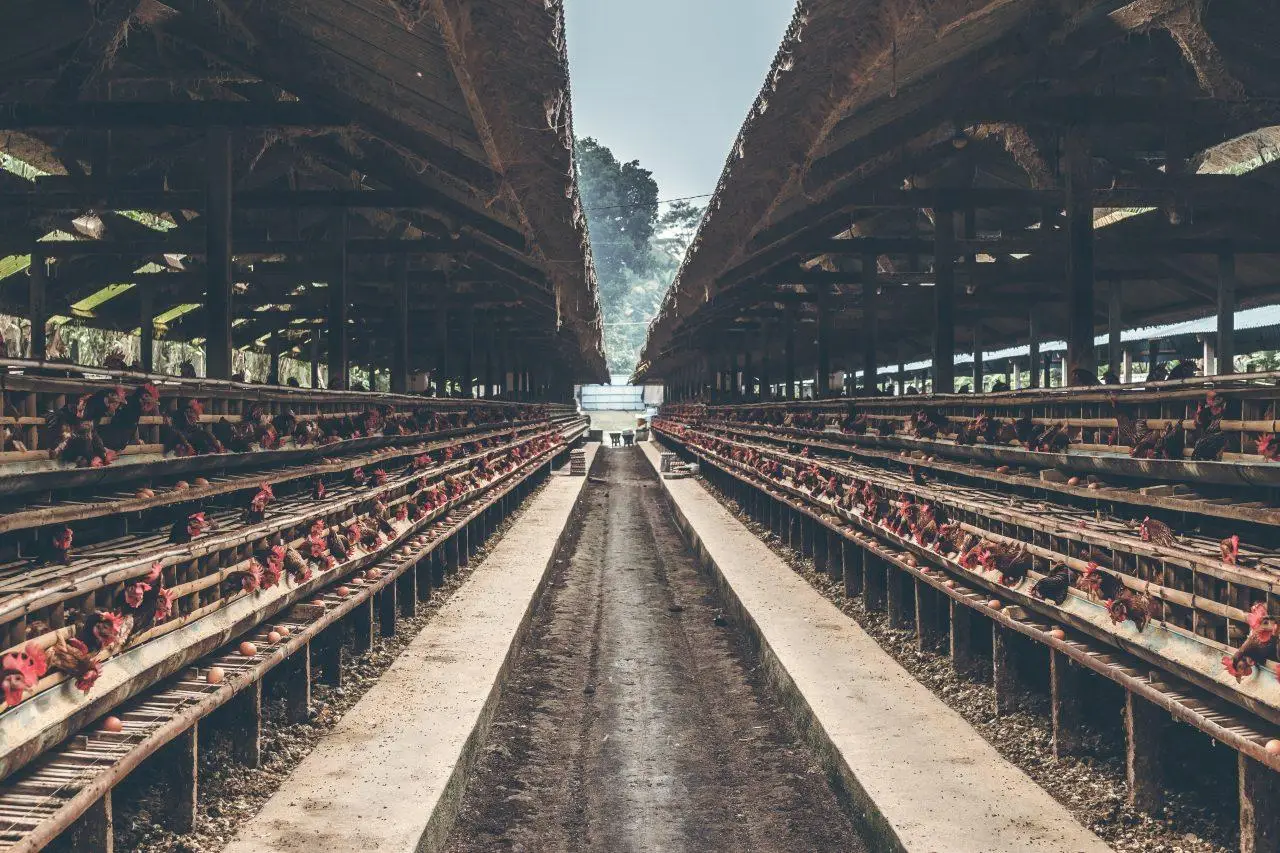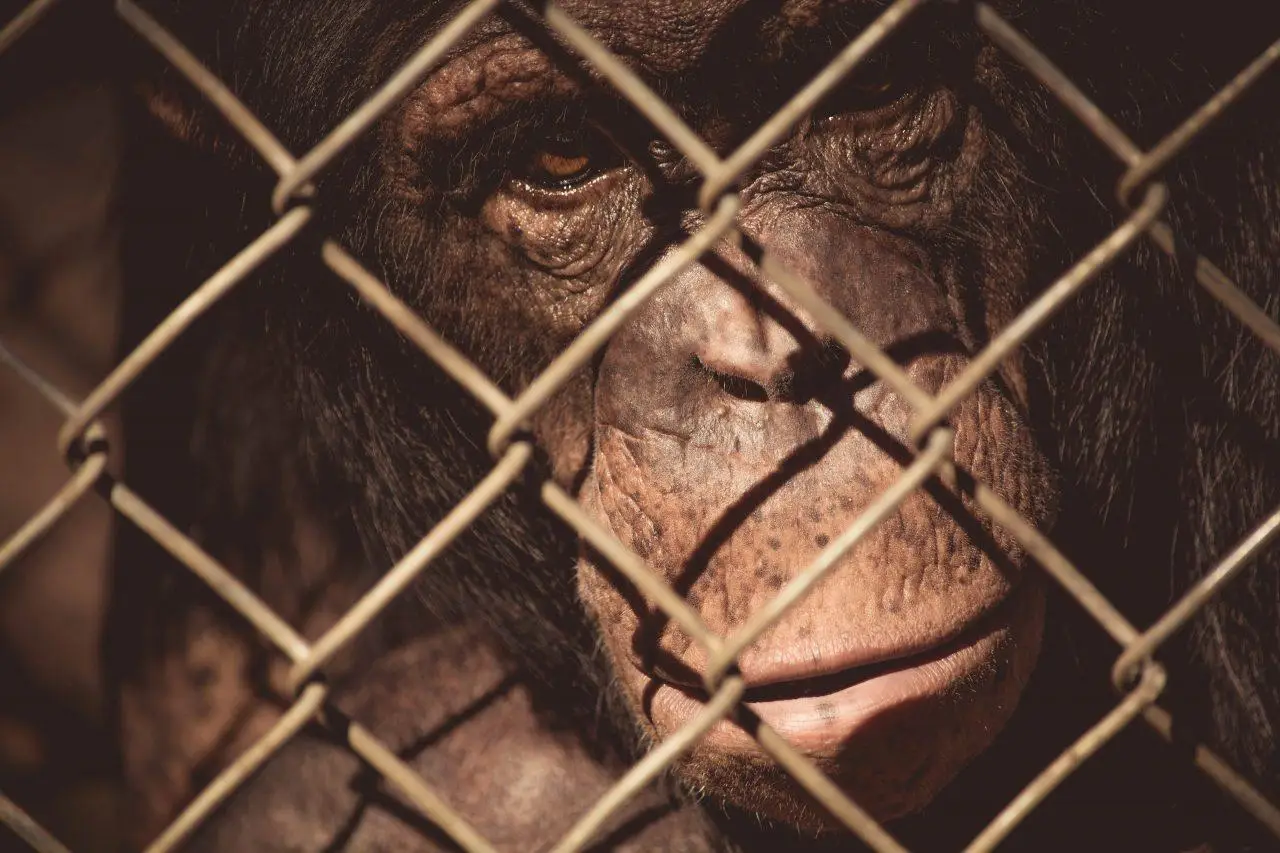Why Go Vegan: A Simple Introduction to Veganism
Over recent years, veganism has spread rapidly across the entire world. What many thought would be a “fad” or “trend” has now been growing exponentially for three years.
Now, it’s hard to switch on the TV or the internet without seeing something about veganism. Why the sudden popularity?
The internet and social media have made us more connected than ever before. Videos can be shared instantly with millions, which has helped to expose the reality behind our food choices.
Veganism is the reflection of a global awakening to our treatment of animals and the desire to end such suffering.
Definition of Veganism
For many, people believe veganism is the sole act of not eating animal products. The official vegan definition that most vegans live by is this one from The Vegan Society:
“Veganism is a way of living which seeks to exclude, as far as is possible and practicable, all forms of exploitation of, and cruelty to, animals for food, clothing or any other purpose.“
As you can see, veganism goes beyond what is on your plate. It also includes any item that is the product of animal suffering or exploitation.
This can include anything from your wooly sweater to the leather seats in your car. We mustn’t forget animal testing and animal entertainment also.
All of these are a no go for vegans.
Why Go Vegan?
The reasons for people going vegan vary but often fall under three areas. For the animals, their health, or the environment.
Some may go vegan for just one of these reasons. Others, like myself, went vegan for two or all three of these reasons.
For the Animals

Our current relationship with animals is nothing short of disturbing. Each year, we breed, imprison, exploit, and slaughter animals in the billions.
It’s thought that we currently slaughter 78 billion animals per year for food alone. That figure doesn’t include marine life. The amount of marine life we catch and kill each year is impossible to count but thought to be trillions of tons per year.
The point is, humans have made a system in which animals are heavily exploited and killed for our own pleasure.
Why does this matter? Because animals are not so different from you and me. They may not be as conscious as humans, but we know they are capable of feeling pain and trauma.
Many of us will have kept dogs or cats in our lives. These animals show us pain and pleasure daily. They give us comparable evidence of their fear and well-being.
Animals cry in pain. They nurse their wounds and avoid those who have hurt them in the past. They feel deep emotional trauma and can even develop PTSD. These attributes are not limited to our pets but include all animals, including fish.
As a result of this knowledge, vegans believe that purposely breeding or catching wild animals for food, clothes, testing, and entertainment is inhumane.
If animals can feel pain and process emotions just like us, we only have to put ourselves in their position to empathize with what their lives must be like.
The question we have to ask is whether this mass exploitation, inflicted pain, emotional trauma, and slaughter of animals is worth it?
Is our sensory pleasure (the taste of animal foods) of more value than the entire life of a living, breathing, feeling creature?
For many vegans, the answer to these questions is simply, no.
For Your Health
It’s probably safe to say, though, that a vegan diet is healthier than the average omnivore diet. Simply because it excludes so many unhealthy animal products such as cheese, sausages, and fatty dairy products. Many of which are staples in an average person’s diet.
Recent research has shown that a well managed and balanced vegan diet is one of the healthiest in the world. It is rich in vital nutrients and can even reduce your risk of obesity, heart disease, type-2 diabetes, and even some cancers.
Here are 5 science-based reasons why a vegan diet is healthy:
1. It’s Rich is Certain Nutrients
When you switch from a typical western diet to a vegan diet, you open the door to nutrients you very rarely consume.
There have been several studies that have found a vegan diet provides your body with a healthier dose of fiber, antioxidants, and beneficial plant compounds.
Vegan diets are also rich in:
- Potassium
- Magnesium
- Folate
- Vitamins A, C, and E
However, you must ensure your vegan diet is well planned. Failure to do so may reduce your intake of vital nutrients such as B12, iron, calcium, iodine, and zinc. All of which are easier to get through a typical western diet.
Stay focused on a well-balanced and varied plant-based diet. Then you won’t have to worry too much about these nutrients. If all you eat is vegan fast-food, you risk missing these vital nutrients in your diet.
2. Lose Excess Weight
New vegans often report a sudden drop in weight of up to 5kg in the first couple of months. Because a typical western diet is full of fatty and sugary foods, you will now be avoiding these foods, and this will help you drop some excess weight.
Research shows that your average vegan is thinner and has a lower body mass index. There have been several randomized controlled studies that have reported a vegan diet is the most effective diet for weight loss.
What’s more impressive is that in one study, vegans who were allowed to eat as much as they want still lost more weight than those on a calorie-restrictive typical western diet!
3. Lowers Blood sugar Levels
The vegan diet is often linked to a lower risk of type-2 diabetes. This is a condition that is fastly becoming an international diet-related epidemic.
Studies show that vegans have lower blood sugar levels and higher insulin sensitivity. Vegans may also have a 50-70% lower risk of developing type-2 diabetes.
4. A Vegan Diet May Protect Against Some Cancers
Vegans eat a lot of foods that are said to reduce the risk of multiple cancers. Legumes can reduce your risk of developing colorectal cancer. Seven portions of fresh fruit and veg can reduce your risk of dying from cancer by 14%!
Vegans also consume a lot of soy products. Research has shown that soy can reduce your risk of breast cancer significantly.
5. You Have a Lower Risk of Heart Disease
A vegan that eats a balanced plant-based diet will naturally consume lots of fruit, vegetables, legumes, and fiber. All of which are linked to a lower risk of heart disease.
Research has also shown that vegans eating a balanced diet have 75% less chance of getting heart disease when compared to vegetarians and those on a traditional western diet.
For the Environment

Over the last few years, our headlines have been dominated by stories about climate change. Veganism is often linked to a considerable reduction in one’s carbon footprint. Thus, veganism and the environment go hand in hand.
A few years ago, one study stated that a vegan diet “is the single biggest way” to reduce your environmental impact on the earth.
Why? Because the breeding, care, farming, feeding, processing, and transportation of animals use vast amounts of resources. In fact, animal agriculture is the second-largest contributor to global carbon emissions on the planet.
Animal ag is also the leading cause of deforestation, water and air pollution, and biodiversity loss. Currently, we breed and slaughter 70 billion animals per year in the animal agriculture industry.
These animals take up nearly 16% of the world’s freshwater and one-third of the world’s ice-free land. Remember, these animals also need to eat, and they eat a lot more than humans. Therefore, one-third of all crops grown get fed to livestock.
A recent study in the USA found that replacing beef with plants in the average American diet alone would reduce their personal carbon footprint by up to 96%!
Animal agriculture emits such large quantities of greenhouse gases due to three factors. Methane is released from enteric fermentation, loss of carbon due to deforestation, and the fossil fuels burned to produce mineral fertilizers for feed production.
Within the entire agriculture industry, livestock farming currently contributes to 75-80% of all carbon emissions.
Going vegan can reduce your personal carbon footprint by up to 73%. This is why many people decide to go vegan for the environment.
The figures above are quite astonishing, but it doesn’t stop there. We haven’t even discussed the positive effects of going vegan on our oceans.
Currently, our oceans are quite literally being emptied of life. The FAO has reported that 80% of all fish stocks are considered to be exploited or overexploited.
Researchers have now predicted that our oceans will be completely empty of all fish by the year 2048. This is due to not only overfishing but large-scale pollution and climate change also.
Considering that 80% of all oxygen on the planet comes from our oceans, this is very bad news. As the founder of the charity Sea Shepherd, Captain Paul Watson says, “If the oceans die, we die.”
But it’s not just the consumption of fish that is the problem. It’s the sheer amount of plastic from commercial fishing boats that are clogging our oceans.
The Great Pacific Garbage Patch is a vast collection of ocean debris. The majority of this debris (705,000 tons) is fishing nets from commercial fishing boats.
Did you know that one-third of all fish caught at sea are ground up and mixed into the animal feed? Therefore, eating meat like beef and pork actually perpetuates the issue of overfishing.
The environmental implications of animal agriculture far outweigh any positives. Not taking part in animal agriculture can help to significantly decrease your negative impact on the planet.
Other Reasons to Go Vegan
The information above only takes into account the food side of veganism. But as stated at the start of this article, veganism goes way beyond what is on your plate.
We shouldn’t forget the implications of the animal fashion industry, animal testing, and the animal entertainment industry.
The Fashion Industry
The clothes we wear are just as important as the food we eat. You may already be aware that fur and leather come from animals, but you may not be aware of all animal materials used by the fashion industry.
These include:
- leather
- wool
- fur
- feathers
- silk
- horn
- bone
- shell
- cashmere
- angora
- shahtoosh
- snakeskin
- shearling
- suede
- pashmina
- mohair
Fur is the most taboo, and most talked-about animal material in the fashion industry. Animal rights activists have been protesting against the use of fur for decades.
Most fur used in the fashion industry comes from animals such as the mink, coyote, seal, fox, rabbit, raccoon, and even beaver. How their fur is taken is extremely inhumane.
Often, these animals are caught in bear traps, which cause significant pain to the animals. Some are captured and caged for days, weeks, or even months.
Some animals are even skinned while still alive, causing the animal immense pain and suffering.
85% of all fur comes from fur factories. Here, profits are always put ahead of animal welfare standards.
Animals are placed into tiny cages where they develop behavioral disorders. This can result in the biting of other animals, self-mutilating, and even acts of cannibalism.
As well as being completely inhumane, fur is also resource-intensive. It takes 20 times more energy to produce real fur than it does fake fur.
Leather is the name given to the skin of an animal. The most common animals used for leather are cows, goats, kangaroos, pigs, cats, and dogs.
There are also exotic skins that are valued at a much higher value that include alligators, crocodiles, and snakes.
Not only is leather a completely inhumane material to produce it is also incredibly damaging to the environment. The toxins used in tanneries where leather is produced are highly toxic and pollute the planet on a devastating scale.
Animal Testing
While animal testing for products like cosmetics and medicines is on the decline, it is still prevalent within many countries across the globe.
There have been many debates about the use of animal testing over the last few years. Here are the main arguments against animal testing.
Not only is animal testing cruel, but it’s also often wholly ineffective. Animals do not get many of the diseases that humans do.
This means laboratories actually infect animals with these human diseases on purpose to test out possible treatments.
This is obviously inhumane. It also fails to address the fact that many human diseases are the result of many complex issues such as genetics, socioeconomic factors, and deeply rooted psychological problems.
It’s no surprise then that when an animal being tested shows a promising recovery, it does not have the same effect when the treatment is given to humans.
We have spent a colossal amount of time and money, making animals suffer in search of treatments for human diseases. Many of which we have not discovered a cure.
“The history of cancer research has been the history of curing cancer in the mouse. We have cured mice of cancer for decades and it simply didn’t work in human beings.” – Dr. Richard Klausner, former director of the US National Cancer Institute.
90% of drugs fail in human trials despite the positive results in animal testing.
Each year we use 115 million animals in experiments globally. The result? In 2018, only 59 new medicines were approved by the FDA. Many of these medicines are for extremely rare diseases.
A full and extensive list of animal testing failures can be found on the Cruelty-Free International website.
Animal Entertainment
Animal entertainment is rife across the entire world. This includes zoos, aquariums, circuses, street performing, animal riding, and sports like horse riding and dog racing.
Unfortunately, humans have been enslaving and exploiting animals as a means to make money for millennia. Today, zoos and animal sports are still everyday activities in both developing and first world countries.
Animals are not actors. Nor are they puppets or things to be shown off in front of crowds of people. Animals are deeply complex creatures with natural animal instincts and desires.
Animals used for entertainment are often introduced into the industry when young. They are either separated from their families in the wild or bred into some form of captivity.
The most famous fight against animal entertainment is that of animal activists against SeaWorld in Florida, USA. The documentary “Black Fish” was seen by millions after being added to Netflix.
People all around the world were outraged at the treatment of these magnificent creatures. Orcas naturally travel thousands of miles each year to mate and feed in their large pods.
At SeaWorld, orcas are kept in an oversize swimming pool, trained excessively from birth, and forced to perform tricks for paying visitors.
The life of an orca is very similar to that of other animals caught up in the terrible animal entertainment industry. Bears in the circus. Lions in petting zoos. Horses in horse racing. Dogs in dog racing. Elephants in riding experiences.
Animals enslaved in this system often suffer from several physical and psychological conditions. Zoochosis is the most common issue, a mental disorder in animals as a result of captivity. Also known as “animal madness.”
Some animals can become dangerous in captivity and take out their frustrations on their zookeepers or visitors.
Animals do not belong in captivity or the entertainment industry. They require their natural habitat to feel content and perform their natural behaviors and animalistic urges.
We, as humans, must acknowledge animal suffering and speak out against animal entertainment at every opportunity we can.








Comments
Well, it’s not easy to become a vegan. I’m totally understand the reason, but I feel hungry all the time if I eat only vegan food. And how to get enough protein?